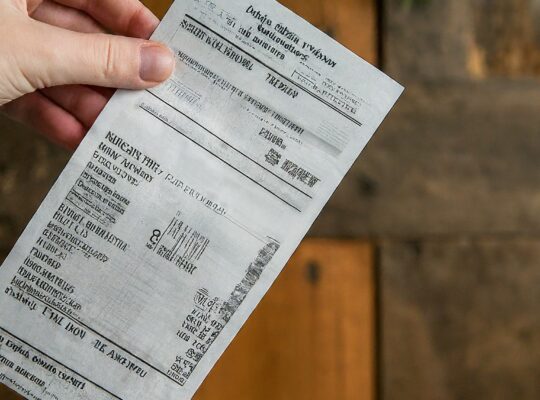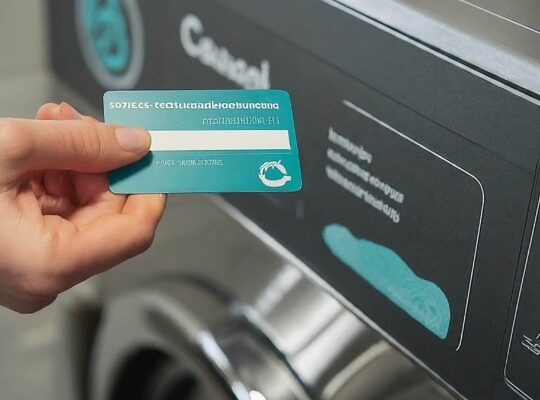In many people’s lives, purchasing a home is a major milestone. It is a symbol of stability, security, and the realization of a dream. The ability of one partner to attain homeownership is often contributed by bad credit. This is when wives wonder if their bad credit can affect the process and ask, will my bad credit affect my husband buying a house?
Will My Bad Credit Affect My Husband Buying a House
The answer to whether or not your bad credit will have an impact on your partner’s ability to buy a house is simply a yes, though not a direct impact. Due to the bad credit that you have, there would be some indirect effects depending on how you and your husband choose to approach the home-buying process.
For instance, in a case where your husband applies for a mortgage alone, your basic credit would not be a factor in the loan qualification process. This is because the lenders will only consider the credit scores and financial history of the person applying.

In the case of a joint application, like if you and your husband apply for a mortgage together, both your and his credit scores will be considered. In this scenario, your lower credit has the ability to affect the interest rates and or the mortgage’s approval. Keep in mind that lenders utilize the lower of the two credit scores when determining interest rates and eligibility.
You also need to remember that even if the loan approval is not directly impacted by the bad credit score, your existing debts and financial situation might affect the debt-to-income ratio. This is an essential factor for lenders since a high debt-to-income ratio would impact the approval of the mortgage.
Effects that Bad Credit have on Buying a House
In the mortgage approval process, the credit score of the person who wants to buy a house is a key element.
It is this element that is used by lenders to act as an indicator of your financial health and responsibility. Simply, this means that bad/poor credit would raise an alarm and concerns about your ability to repay the much-needed mortgage. As a result of this, the chances that your husband has of securing a loan as significantly reduced.
As much as the likelihood of securing a loan is affected by the bad credit, this does not mean that his dreams of homeownership are dashed.
Read About: What Is the Gator Method in Real Estate Investing
The fact that lenders put into consideration multiple factors during the joint mortgage application evaluation process, acts as a room for hope. These factors include your husband’s credit history, income, and financial stability. Therefore, while your bad credit would affect the mortgage terms, it does not automatically disqualify your husband from buying a house.
Your Husband’s Ability to Get a Mortgage Vs Your Bad Credit
In matters of mortgages, the creditworthiness of both applicants in the case of a joint application is considered.
During the process, lenders would typically use a blend of your credit scores and those of your husband and consider the lowest middle score as the basis for evaluating the application.
In case your credit score is considerably lower than that of your husband, two things might happen. Either you get a higher interest rate or a denial of the mortgage.
Also, your bad credit score has an impact on the loan-to-value ratio (LTV). This is the percentage of the property’s value that the lender is willing to finance. With respect to the mortgage, a lower credit score would lead to a higher LTV. Meaning that you would require a larger down payment from your husband in order to compensate for the increased risk.
Ways to Improve Bad Credit Scores
Since bad credit would affect the ability of your husband to buy a house, you need to make adjustments to it – make it better. Bad credit is not a permanent roadblock to a mortgage, it is a temporary one and the moment you improve it, it will no longer be an issue when it comes to buying a house.
Here are some ways you can improve your credit score before your husband applies for a mortgage:
- Review your credit report: Obtain a copy of your credit report and carefully review it for any errors or discrepancies. Dispute any inaccuracies and work towards having them corrected, as they could be negatively impacting your credit score.
- Pay off outstanding debts: Prioritize paying off any outstanding debts, especially high-interest credit card balances. Reducing your overall debt can improve your credit utilization ratio, a key factor in determining your credit score.
- Make timely payments: Consistently making on-time payments for your bills and credit obligations can positively impact your credit score over time. Set up automatic payments or reminders to ensure you don’t miss any due dates.
- Limit new credit applications: Avoid applying for new credit cards or loans in the months leading up to your husband’s mortgage application. Multiple credit inquiries can temporarily lower your credit score.
- Reduce credit card balances: Aim to keep your credit card balances below 30% of your available credit limit. Lower utilization rates can improve your credit score, showcasing responsible credit management.
Alternatives of Buying a House with Bad Credit
The challenge posed by the bad credit score is not the end of the world. There are other options on the table.
In order to secure a mortgage, both of you can decide to co-sign a mortgage. By doing so, you essentially combine both your income and credit scores. This potentially offsets the impact of your bad credit. The major downside of this option is that in case you default on the loan, both you and your husband’s credit scores would face severe consequences.

Apart from traditional mortgages, there are other alternative financing options for people with bad credit. These are the likes of the Federal Housing Admiration (FHA) which is designed particularly for people with lower credit scores, the United States Department of Agriculture (USDA) which provides loans for rural homebuyers with limited income and credit issues and the VA loans which are for veteran or active-duty military personnel. The VA loans are guaranteed by the Department of Veterans Affairs and have more flexible credit requirements.
Improving Credit Scores through Professional Help
In case you are struggling to improve your credit score on your own, you need to seek professional assistance.
Credit counseling agencies and financial advisors specialize in helping people with credit challenges and they offer personalized guidance and strategies for improving creditworthiness.
Hence, through the assistance of a credit counselor, you would be able to understand the factors affecting your credit score, develop a personalized action plan, and get ongoing support. You would also be provided with insights on debt management, effective budgeting, and ways of establishing healthy financial habits.
Final Remarks
Will my bad credit affect my husband buying a house? As long as it is a joint mortgage application, your bad credit will affect your husband’s ability to buy a house. But if he is buying on his own, it would not. The impact that the bad credit would have is not a direct one, it is indirect and something that can be correctly done by putting in the effort to improve your credit score.
Do not let bad credit hold you back, take control of your finances and improve your credit score.








